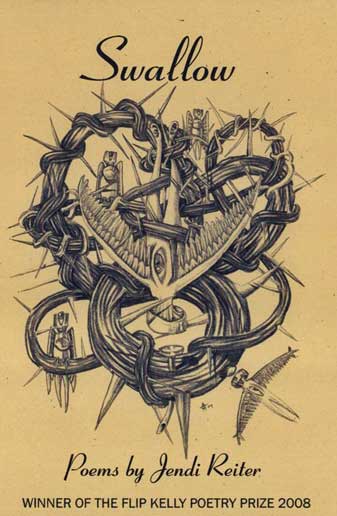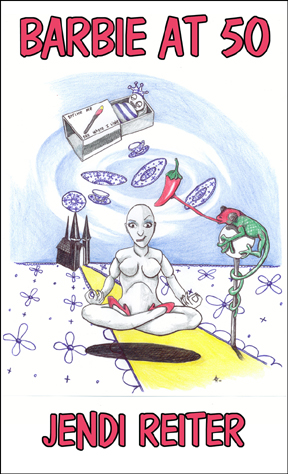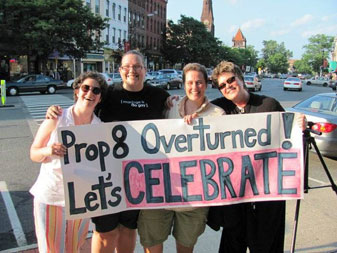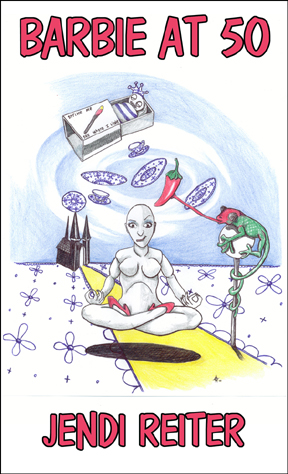This is the first in a series of posts about the highlights of my trip to the AWP writers’ conference in Washington, DC this month.
Race relations proved to be a recurring theme in several events I attended, addressed by writers whose strategies ranged from confrontation to elegy to satire. The juxtaposition of these diverse and occasionally discordant approaches continues to make me ponder how we can speak about race in ways that are both skillful and honest, and the reasons we avoid doing so.
Avoiding speaking about race, of course, is a privilege mainly possessed by white people. I have the option, which I usually exercise, to follow the old adage that “It is better to say nothing and be thought a fool than open your mouth and remove all doubt.” So I am stating up-front that everything I say after this paragraph is unavoidably somewhat tainted by the defensiveness and lack of knowledge that are my heritage as a white American.
Okay, now on to blaming other people…
I am going to venture to say that one factor in white people’s avoidance of race talk is the feeling that we’ll be condemned for speaking out of our experience of whiteness, even if we’re doing so in order to identify and transcend areas of prejudice. We can’t move beyond our racism-influenced misconceptions until we bring them to light and ask for a critique of their deficiencies. However, if the mere act of disclosing those views exposes us to condemnation, the dialogue ends before it began.
Any safe dialogue depends on meeting people where they are. Since racial inequality is a structural problem that shapes every individual’s consciousness whether they want it to or not, I feel that the full force of your justified anger should not be leveled at the white individual who happens to be in front of you, who didn’t choose this situation either.
I wish there was a word other than “racist” that could express the distinction between intentional animus toward nonwhites, and attitudes formed by white privilege that we have the intention to correct but need help achieving the insight. Something like the difference between homophobia and heterosexism. I am pretty sure I’ve never been homophobic, but until I started writing about gay characters and became involved in activism, I was blind to many ways in which my cultural upbringing assumed the normalness of heterosexuality and erased alternative identities. With respect to transpeople, I probably have a little bit of both. I didn’t know any transpeople until a couple of years ago, and so I believed most of the media stereotypes and didn’t take offense at the sensationalized and mocking way they were portrayed. My intentions are in the process of correcting my gut reactions. I think it’s been crucial that folks in the trans community have been really patient with me and welcomed my efforts to educate myself as an ally.
So what does this have to do with AWP?
Each night of the conference, several famous authors were scheduled to give readings. On Friday, we went to the poetry reading by Claudia Rankine and Charles Wright. This was a weird pairing in itself, as Rankine is a passionate, political, experimental African-American writer, and Wright turned out to be a genial old Southern white fellow who read meandering Buddhist poems about nature and death.
Instead of poetry, though, Rankine read an essay, or maybe more of a speech, condemning the racism she found in the Tony Hoagland poem “The Change“. She then read Hoagland’s response to her initial complaint to him, and her reaction to that response.
Regardless of its merits, and it did have some, the format of this absentee dialogue made me uncomfortable. It felt like our audience of several hundred people was being enlisted in an attack on someone who was not there to respond. Rankine’s anger, which drew its force and righteousness from the collective history of racial oppression, was being brought to bear almost entirely on an individual.
To quote another cliche, “Be kind, for everyone you meet is fighting a great battle.” It’s important, when doing justice work, not to get tunnel vision–seeing the person in front of you only as the representative of the one area in which she is more privileged than you. Your audience might include trauma survivors and people who were triangulated into family conflicts. I came for a poetry reading, not to hear Mommy tell me why I should hate Daddy.
That said, I agree with Rankine that Hoagland’s poem has real problems. In it, the white narrator (presumably male, presumably middle-aged because he’s old enough to remember a time before integrated tennis) reports feeling discomfort and resentment while he watches a black American tennis player (obviously based on Venus Williams) soundly defeat a white European. With resigned, self-mocking humor, he concludes that we’ve entered a new era where his “tribe” can no longer expect to be on top. He knows he should feel good about this but a more primal part of him really doesn’t.
Rankine focused her objections on the racial stereotypes in his description of “Vondella Aphrodite”, the aggressive “big black girl” with “complicated hair” and “Zulu bangles”. She was also, I think, generally offended by the idea that someone in Hoagland’s/the narrator’s position of white privilege would dare to feel sorry for himself, albeit in a tongue-in-cheek way. She mocked the naivete of thinking that white privilege was a thing of the past, just because a black athlete won a tournament.
I think Hoagland’s poem stands or falls based on whether there’s a separation between author and narrator. That is, is he reporting these views or also advocating them? Rankine insisted on assuming the latter, despite Hoagland’s denial in his letter to her. Because of her strong feelings, she deprived us of a more valuable discussion about poetic craft and authorial intent.
Option one: This is a persona poem about feelings the typical white Americans might have but not wish to admit. By writing the poem, Hoagland is showing that he knows more than the narrator. He’s exaggerating their distorted thinking, to the point of humorous absurdity, so that we as readers can learn something about American race relations that’s obscured by white liberal platitudes–and even have a painful shock of recognition as we admit to these feelings ourselves. (In his letter to Rankine, Hoagland implied that this was his intent.)
Option two: Hoagland shares the narrator’s feelings, and is appointing himself the mouthpiece of other white people who have the same views. In this 2005 article from the Brandeis University student newspaper, interviewing him after a reading of “The Change”, Hoagland picks option two:
…His most controversial poem, “The Change,” was written around the time when Venus Williams first appeared in tennis matches.
“I knew something important had happened, though no one knew it yet,” Hoagland said. He expressed contempt for what he described as the rugged and base way that an African-American came out on top of a white competitor. Hoagland said very few publishers had been willing to associate themselves with this politically incorrect work, but he feels that it is important to always be honest, and likes his poems to upset people.
“I was giving a voice to America’s dirty secret,” said Hoagland. “I like to shock some people.”
In my opinion, “The Change” is not a very good poem because you can’t tell whether he is critiquing or endorsing racism. Since the subject of the poem is race relations, this is a pretty big flaw.
I’m not all that interested in whether Hoagland is personally a racist. More pertinent to me, and the rest of the writers in the audience, is the craft question: how do we honestly portray stereotyped thinking without perpetuating it? How can we surround these painful subjects with an atmosphere of compassion and understanding, so that everyone can speak from the place of their truth and yet be open to change?
On Saturday night, Nick Demske jumped into this arena with two big white feet. Demske is a new addition to the Fence Books community of gutsy experimental poets who make sculptures both monstrous and humorous out of the ever-expanding junkpile of popular culture. Poets like Demske embrace and amplify the degradation of our common language in order to triumph over it by nonetheless achieving a distinctive voice, while remaining honest about how quickly that voice will be assimilated and obliterated by the bit-stream.
Or so I’d like to believe, because the risk that mimicry will overtake critique is the same as in Hoagland’s poetry, though Demske’s work is at the opposite end of the spectrum from the older poet’s lack of self-consciousness.
I first discovered Demske through his Otis Henry poems, which satirically apply the braggadocio of gangsta rap to the persona of the poet. The character of Otis Henry is just barely saved from ridiculousness by the tinge of aggression in these tall tales. He’s not just a nerdy poet pretending to be ghetto. He might actually fuck you up, and you might even enjoy it, because through him, you become part of the legend.
At the Fence reading on Saturday, held at The Big Hunt bar in Dupont Circle, Demske read some work from his manuscript-in-progress, Starfucker, which he said was inspired by the famous gangsta rapper Ol’ Dirty Bastard, a/k/a Big Baby Jesus. Some poems from this book are available online at Sawbuck Poems and Weird Deer , but I haven’t been able to find the one he read that night, which included the repeated shout-out “Niggaz!”
Now, black rappers often use the N-word the same way some gays will use “queer” within their own group, or teen girls will greet each other with “What’s up, bitches?” — as a form of group bonding that also gives the finger to the outside world that would shame them for their identity. Obviously, it’s more problematic when a white poet uses the word, and Demske knows this. To me, he seems to be asserting that gangsta-rap language has crossed over into white culture so much that it has become part of his heritage too, and that this is all the more reason to bring it into the realm of artistic dialogue and critique. Is the popularity of gangsta rap among white middle-American teens a step toward multicultural harmony, or a cover for a new kind of offensive stereotyping, or both? Unlike Hoagland’s narrator in “The Change”, Demske’s not taking the token success of African-Americans in entertainment as proof that we no longer need to worry about racism.
I’m still not sure whether Demske always stays on the right side of the line he’s walking. Merely putting an offensive phrase up-front in a difficult poem doesn’t by itself guarantee that readers will think about it, instead of absorbing the shock value and reading on. When he says in “As Far Away”, a poem from his self-titled collection from Fence, “The Holocaust never happened. Better luck next time,” for whose benefit is he tossing those explosive words around? Based on the context, I trust that he has a humane point to make, maybe something about the muting of human anguish and anger by the data overload that constantly surrounds us. “When you’re finished recording, please hang up and try again,” says the mechanical voice in this poem, unmoved by the most shocking thing he can say to it.
If we’re not offended by this poem, does that mean we’re also dulled and mechanized, no longer fully human? How long can this strategy work to recall us to ourselves, before we become further desensitized?
On Demske’s blog this week, he’s posted an open letter from Claudia Rankine, who’s inviting the poetry community to discuss how we write or don’t write about race. Her questions are excellent and difficult. Let the dialogue continue!
Here are some more reactions to Rankine’s presentation from around the poetry blogosphere:
J’s Theater
Whose Shoes Are These Anyway?
Nothing to Say & Saying It (John Gallaher’s blog; comments section is especially interesting)
Joseph Patrick Wood



